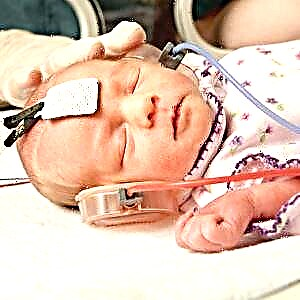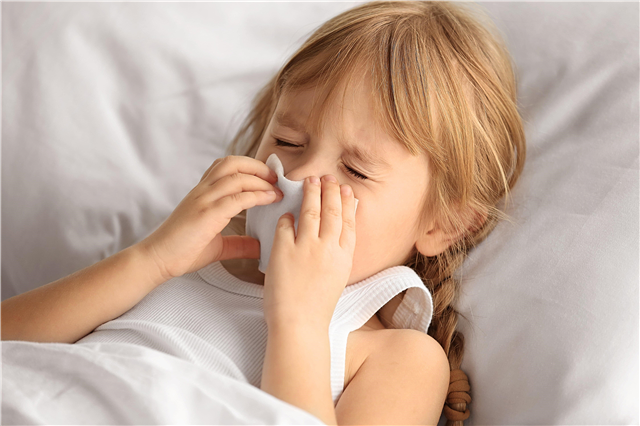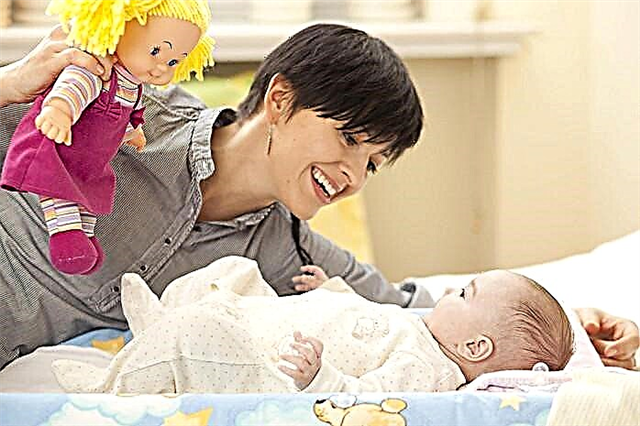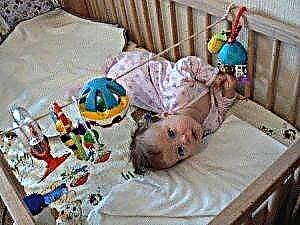The child's senses are a special topic that I would like to talk about. In utero, the baby is in a liquid substance - amniotic fluid. Probably, you have already repeatedly seen the video of a child kissing his lips on an ultrasound scan.
The baby's senses are a little immature, but they function, which means that newborn babies distinguish the outlines of figures, looking at you, smell milk, and also distinguish the timbre of the voice. There is an opinion that newborns like high voices more than low ones.
So where does it all start?
The baby is born and the adaptation process begins after childbirth. In the first days of a newborn's life, the circulatory system is radically reconstructed, and with it the respiratory system.
As for the nervous system and sense organs, their adaptation process is very long and requires large expenditures of the body. That is why it ends by about three months. Let's see how this happens.
At what age does a child begin to see?
By about 3 months, when he first gets to know mom. Newborns are born with a high degree of myopia and can see from about 30 centimeters away.
How far can you see the face with this vision? It seems to be hard to do. But the chest is quite possible. In addition, the crumbs have very weak gaze fixation. That is why newborns do not recognize their parents.
I would also like to note that newborns do not know how to consciously smile or cry. Therefore, if you see incomprehensible grimaces in a newborn, immediately consult a doctor.
In more detail about when a child begins to see and how the development of the organs of vision in a newborn baby occurs, the ophthalmologist tells.
It will be useful for parents of newborn babies to find out what a baby can do at 1 month. The children's doctor will tell you about this as meaningfully as possible.
When does a child start to smell?
The sense of smell is, perhaps, developed in a newborn by almost 100%. They smell milk, being at a great distance from their mother.
This is especially evident in the first three days, when the milk in the breast has not yet arrived, and the baby's hunger makes itself felt. It is at this time that mommy can make a mistake and put the baby to sleep next to her.
In this case, the newborn gets used to smell milk, and then it will be simply impossible to sleep separately.

When does a baby start to hear?
The most common question for mothers is: does a newborn baby hear? As I said above, they perfectly distinguish the timbre of the voice, but, of course, they do not understand the meaning of the words.
Despite this, it is worth constantly talking to newborns. The baby also begins to respond to sounds by 3 months.
The development of hearing and phonetic perception is facilitated by the sounds of animals for children. A child psychologist talks about the benefits of such auditions.
How is a newborn's hearing tested?
Now in every maternity hospital on the 3rd - 4th day (and in premature newborns on the 7th) hearing tests are performed. It consists in the fact that a relatively small portable device is brought into the ward when the child is sleeping.
 A sensor is inserted into the external ear canal, which produces certain waves. If the sound is reflected from the eardrum, it means that the otoacoustic emission is registered and the child's hearing is OK.
A sensor is inserted into the external ear canal, which produces certain waves. If the sound is reflected from the eardrum, it means that the otoacoustic emission is registered and the child's hearing is OK.
You can find out about the results of the examination from the attending physician in the maternity hospital or see in the discharge. If the test in the hospital is not passed, this is not yet a reason to be upset. There can be many reasons. But this is especially true of premature newborns.
After reaching its due "due date", hearing is likely to appear. If the baby is born with a lot of birth lubrication, this can also be an obstacle to the passage of the sound wave.
Also, they do not conduct research in children who, for health reasons, are or were in the intensive care unit. In these three cases, examination control is prescribed in a month.
In addition, a doctor can indirectly check the hearing of a newborn by triggering the Moro reflex. This is a fright reflex, which is defensive. It manifests itself in the spreading of pens and flinching when the doctor's hands are slammed against the table at a distance of 15 centimeters on both sides of the child's head.
In no case should parents check this reflex on their own at home.
If a child at 1 month does not respond to harsh sounds, this is a reason to consult a doctor - a neurologist and an audiologist, who, in turn, will help find the cause.
Predisposing factors for the onset of hearing loss:
- heredity. If mom, dad or grandparents were diagnosed with hearing loss, you should definitely inform the doctor about this, the disease can be inherited;
- intrauterine infections. Infections that a child could have contracted in utero (cytomegalovirus, toxoplasmosis, and others) are now very common and pose a rather great danger to the fetus and newborn;
- prematurity (gestation less than 37 weeks);
- small children (up to 2500) are at risk of hearing impairment;
- malformations of the facial skeleton;
- the use of drugs that negatively affect the hearing organ of a newborn (ototoxic), especially antibiotics, which are prescribed to newborns for certain diseases.
Children who have one or more of these risk factors are usually referred for re-evaluation.



